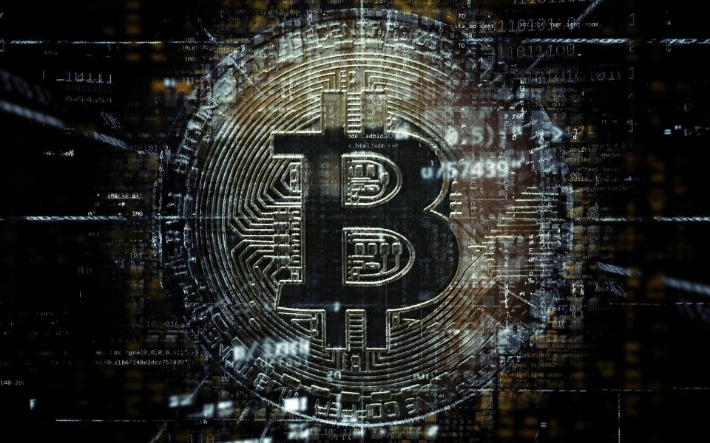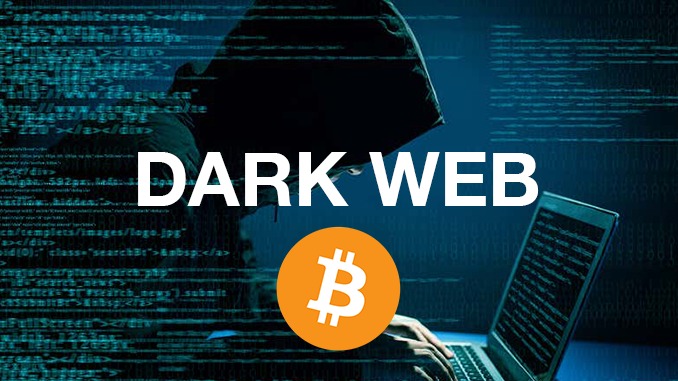Understanding Bitcoin on the Dark Web
Understanding Bitcoin on the dark web requires exploring how this digital currency is utilized beyond conventional online environments. The dark web serves as a hidden part of the internet where anonymity is prioritized, making it a favored platform for various activities involving cryptocurrencies. Bitcoin dark web transactions are often associated with illegal marketplaces, privacy-focused exchanges, and covert financial exchanges. These activities highlight the importance of grasping how Bitcoin operates within this underground network, emphasizing both its role in facilitating anonymous transactions and the growing need for security awareness. To learn more about the intersection of Bitcoin and the dark web, you can visit this comprehensive resource on bitcoin dark web.
Definition and Overview of the Dark Web
The dark web is a hidden part of the internet that is not accessible through standard search engines or browsers. It operates on encrypted networks, making it difficult to track and access without specialized software. This segment of the internet is often associated with anonymous activities, including illegal transactions, but also serves as a safe space for privacy-conscious individuals. Within the dark web, cryptocurrencies like Bitcoin have become a popular medium of exchange due to their pseudonymous nature, offering a degree of anonymity that traditional currencies do not provide.
Understanding Bitcoin on the dark web involves recognizing its role as a decentralized digital currency that facilitates transactions without the need for intermediaries. Its blockchain technology ensures transparency while maintaining user privacy when used correctly. This combination makes Bitcoin a preferred choice for users engaging in activities within the dark web, where privacy and security are paramount. Despite its legitimate uses, the dark web’s association with illicit activities has influenced perceptions of Bitcoin, though it also supports legitimate privacy-focused transactions and secure communications.
Role of Bitcoin in Dark Web Transactions
Bitcoin has gained significant attention as a digital currency that facilitates transactions in various online environments, including the dark web. Its decentralized nature and pseudonymous features make it appealing for users seeking privacy and anonymity. On the dark web, Bitcoin is often the primary currency used for buying and selling goods and services, enabling transactions that bypass traditional financial institutions and regulatory oversight.
The role of Bitcoin in dark web transactions is crucial because it provides a relatively secure and untraceable method of transferring funds. Unlike conventional currencies, Bitcoin transactions are recorded on a public ledger called the blockchain, but the identities behind wallet addresses remain protected, enhancing user privacy. This characteristic has contributed to its widespread adoption for illicit activities, although it also has legitimate uses in privacy-sensitive contexts.
Transactions involving Bitcoin on the dark web typically involve exchanging the digital currency for various illegal or unregulated products and services. The transparency of the blockchain allows for some level of oversight, but the use of techniques such as coin mixing and privacy-focused wallets can obscure transaction trails, complicating efforts to trace funds. Despite this, law enforcement agencies continue to develop methods to track and analyze Bitcoin transactions associated with illegal activities.
Overall, understanding Bitcoin’s role on the dark web involves recognizing its dual nature as both a tool for privacy and a medium for illicit transactions. Its popularity in these environments underscores the importance of ongoing efforts to balance user anonymity with the need for security and regulation to combat illegal activities.
How Bitcoin Facilitates Dark Web Activities
The anonymity and ease of transfer associated with Bitcoin have made it a preferred digital currency for various activities on the dark web. This clandestine environment relies heavily on cryptocurrencies like Bitcoin to facilitate transactions that are difficult to trace, providing a layer of privacy that traditional banking systems cannot offer. By leveraging this digital currency, individuals involved in illegal or confidential exchanges can operate more securely without exposing their identities. For those exploring the depths of the Bitcoin dark web, understanding how Bitcoin is used to enable illicit activities is essential for comprehending the evolving landscape of online anonymity and security.
Privacy and Anonymity Features of Bitcoin
Bitcoin has become a popular digital currency known for its decentralized nature and extensive use in various online transactions. One notable aspect of Bitcoin is its role in enabling activities on the dark web, where privacy and anonymity are highly valued. Due to its technological features, Bitcoin provides a certain level of confidentiality that appeals to users seeking to conceal their identities during transactions.
One of the key privacy features of Bitcoin is its pseudonymous nature. While transactions are recorded on a public ledger called the blockchain, the identities behind wallet addresses are not directly linked to personal information. This allows users to conduct transactions without revealing their real-world identities, making it attractive for those involved in dark web activities.
Moreover, Bitcoin’s transparent blockchain ensures transaction verification and security, but it also allows for a degree of obscurity. Users can generate new wallet addresses for each transaction, which helps to prevent pattern recognition and tracking over time. This flexibility enhances privacy, although it does not guarantee complete anonymity.
In the context of the bitcoin dark web, this combination of pseudonymity and transaction flexibility makes Bitcoin a preferred currency among those engaging in illicit activities. The decentralized nature of Bitcoin means that there is no central authority controlling or monitoring transactions, reducing the chances of censorship or interdiction.
Despite these privacy features, it is important to recognize that investigators and law enforcement agencies have developed methods to track Bitcoin transactions and identify individuals involved in illegal activities. Nevertheless, the intrinsic privacy features of Bitcoin continue to make it a significant tool on the dark web for anonymous trading and exchanges.
Comparison with Traditional Payment Methods
Bitcoin plays a significant role in facilitating activities on the dark web, often being the preferred digital currency due to its perceived anonymity and decentralization. Unlike traditional payment methods such as credit cards, bank transfers, or digital wallets, Bitcoin transactions do not require personal information to be directly linked to the payment process. This characteristic makes it easier for users engaging in illicit activities to maintain a degree of privacy and avoid detection by authorities.
Traditional payment methods are typically traceable because they involve banking institutions and financial intermediaries that maintain transaction logs. These records can be used by law enforcement agencies to track suspicious activities back to individuals. In contrast, Bitcoin dark web transactions leverage the blockchain—a public ledger—yet, the pseudonymous nature of Bitcoin addresses makes it challenging to immediately associate transactions with real-world identities without additional intelligence or investigative efforts.
While Bitcoin offers a level of privacy that appeals to those on the dark web, it is not entirely anonymous. Blockchain analysis tools have advanced significantly, allowing authorities to identify patterns and potentially link Bitcoin transactions to individuals. Nevertheless, the ease of use, speed, and widespread acceptance of Bitcoin continue to make it a popular choice over traditional payment methods for conducting anonymous online transactions on the dark web.
Overall, Bitcoin’s technological features provide a more flexible and somewhat more private alternative to conventional financial services, which has contributed greatly to its adoption for dark web activities. However, ongoing developments in blockchain analysis and regulatory efforts aim to reduce the anonymity that initially made Bitcoin so attractive for such purposes.
Security and Risks Associated with Dark Web Bitcoin Use
The use of bitcoin on the dark web presents a unique set of security concerns and risks that users should carefully consider. While bitcoin offers a level of pseudonymity and decentralization, its association with illicit activities on the dark web makes it a target for cybercriminals and law enforcement monitoring. Transactions conducted through dark web platforms can expose users to hacking, scams, and potential legal repercussions. It is crucial for individuals engaging in dark web bitcoin activities to understand these risks and implement robust security measures, such as using secure wallets and anonymizing tools, to protect their identity and assets. For a deeper understanding of how bitcoin operates within these hidden networks, exploring resources dedicated to the dark web can provide valuable insights into the associated threats and protective strategies.
Encryption and Pseudonymity Challenges
The use of Bitcoin on the dark web presents significant security concerns and risks that both users and law enforcement must consider. While Bitcoin offers a degree of pseudonymity, it does not guarantee complete privacy, as all transactions are recorded on the blockchain, which is publicly accessible. This transparency can be exploited by forensic experts to trace digital footprints and identify users involved in illicit activities. Additionally, dark web environments are often targeted by hackers and malicious actors who attempt to compromise users through phishing, malware, or scams, leading to potential financial loss and data breaches.
Encryption methods used to secure communications and transactions on the dark web can be both a safeguard and a complicating factor. While encryption protects user data from interception, it also makes detecting illegal activities more challenging for authorities. Pseudonymity, a core feature of Bitcoin, allows users to operate under pseudonymous addresses; however, it is not foolproof. With sophisticated analysis techniques, these pseudonymous addresses can sometimes be linked back to real-world identities, increasing the risk of exposure and legal repercussions.
Users engaging in Bitcoin transactions on the dark web face the constant threat of scams, hacking, and law enforcement actions. The complexity of maintaining privacy and security in such environments requires a strong understanding of digital security practices, including the use of secure wallets, VPNs, and network anonymization tools. Nevertheless, the inherent risks associated with dark web Bitcoin use emphasize the importance of cautious behavior and awareness of potential security vulnerabilities. As the landscape evolves, ongoing challenges related to encryption reliability and pseudonymity continue to impact the safety of participants involved in dark web activities involving Bitcoin.
Potential for Fraud and Law Enforcement Interventions
The use of Bitcoin on the dark web presents significant security concerns and risks that users should carefully consider. Because transactions are often shrouded in anonymity, this environment attracts illicit activities, including illegal trade and fraud. These activities increase the likelihood of falling victim to scams or malware, which can result in financial loss and compromise of personal information. Moreover, the decentralized nature of Bitcoin makes it challenging for law enforcement agencies to track and regulate transactions effectively, leading to limited oversight in these illicit marketplaces.
One of the primary risks associated with Bitcoin use on the dark web is the potential for fraud. Unscrupulous actors may exploit the anonymity to deceive users through counterfeit services, fake listings, or blackmail schemes. Since transactions are irreversible, victims often find it difficult to recover lost funds. Additionally, the lack of consumer protections and regulatory oversight means there is little recourse for users who encounter scams or other malicious activities.

Law enforcement interventions pose another significant risk for dark web activities involving Bitcoin. Authorities worldwide have ramped up efforts to dismantle illegal dark web markets and track illicit financial flows. Although Bitcoin transactions are pseudonymous, investigators utilize advanced blockchain analysis techniques to identify patterns and link transactions to real-world identities. As a result, users engaging in unlawful activities with Bitcoin on the dark web face a high risk of arrest and prosecution, which acts as a deterrent but also underscores the criminal nature of such engagements.
- Instead, it’s been Litecoin, which is faster and cheaper than Bitcoin, but otherwise mostly uses the same technology and is no safer to use.
- Dark web monitoring tools automatically allow law enforcement agencies to view illicit marketplaces, forums, and communication platforms for signs of illegal activity involving cryptocurrency.
- “Numerous publicly available reports, even with Tor and VPN assisted searches, have indicated no adoption of Dash as an alternative payment method for these (Dark Net) transactions,” Ryan Taylor, Dash CEO, stated in an email.
- After having addressed topics such as NFC, startups, and tech innovation, she has now shifted focus to internet security, with a keen interest in smart homes and IoT threats.
- Its blockchain technology means that each successive exchange adds to the ledger, slowing down transfer speeds, and its exploding popularity coupled with limited availability has made it too expensive to use for many day-to-day purchases.
Entering the Dark Web: Accessing Bitcoin Markets
Entering the dark web to access bitcoin markets can be a complex and potentially risky endeavor. As a hidden part of the internet, the dark web hosts various activities, including the trading of cryptocurrencies like bitcoin. Engaging with the bitcoin dark web requires understanding how to navigate its anonymous networks safely and legally. For those interested in exploring this underground marketplace, it is crucial to prioritize security and awareness of the associated legal implications. To learn more about how to securely access bitcoin marketplaces on the dark web, consider exploring resources dedicated to darknet navigation and security protocols.
Dark Web Browsers and Access Points
Entering the dark web to access bitcoin markets involves navigating a hidden segment of the internet that is not indexed by traditional search engines. This part of the internet is often associated with anonymous transactions and illicit activities, making it important to approach with caution and awareness. The dark web operates on specialized software and protocols designed to provide privacy and conceal user identities, with bitcoin being a preferred currency for transactions due to its pseudonymous nature.

Access to these bitcoin dark web markets requires the use of dark web browsers, such as The Onion Router (Tor). Tor allows users to connect to services hosted on the dark web by routing their internet traffic through a distributed network of relays, anonymizing their identity and location. Setting up Tor is straightforward, but users should ensure they download official versions from trusted sources and keep their software updated for security reasons.
Once installed, users can access dark web portals via specific access points known as onion sites. These sites are hosted on the Tor network and are not accessible through standard web browsers. To reach bitcoin markets on the dark web, users typically need to configure their wallets and ensure their device security is robust to prevent tracing or hacking attempts. It’s essential to understand that these markets often operate in a gray legal area, highlighting the importance of exercising caution and understanding the risks involved.
Overall, entering the dark web to explore bitcoin markets involves careful preparation: utilizing secure browsers like Tor, connecting through designated access points, and maintaining strong privacy practices. While the dark web offers avenues for anonymous transactions, it is critical to be fully aware of the legal and security implications to avoid potential pitfalls.
Obtaining and Using Bitcoin for Purchases
Entering the dark web to access bitcoin markets involves navigating a complex and often clandestine digital environment where cryptocurrencies like Bitcoin are commonly used for transactions. The dark web, a part of the internet that isn’t indexed by traditional search engines, hosts various marketplaces and forums that facilitate the buying and selling of numerous goods and services, often utilizing bitcoin due to its pseudonymous nature. To participate in these markets, users typically need to understand how to obtain Bitcoin securely and how to use it for purchases while maintaining anonymity and security.
Acquiring Bitcoin for dark web activities usually requires using cryptocurrency exchanges or peer-to-peer platforms that support the purchase of digital currencies. Once obtained, bitcoins are stored in digital wallets, which can be either software-based or hardware devices designed to protect private keys from theft or hacking. Using bitcoin on the dark web involves transferring funds from these wallets to the marketplace’s specified addresses, often after employing additional privacy measures such as mixing or tumbling services that obscure transaction trails.
When engaging in purchases on the dark web, it’s essential to prioritize security and anonymity. Users should employ secure internet connections, utilize privacy-focused browsers, and take steps to minimize identifying information. While bitcoin offers a greater degree of privacy compared to traditional banking methods, it is important to remember that all transactions are recorded on the blockchain, making it possible for sophisticated analysis to trace activity. Therefore, understanding best practices for maintaining anonymity is crucial for anyone entering the dark web bitcoin markets.
Overall, participating in the dark web with bitcoin requires careful planning and a strong understanding of digital security principles. By thoroughly researching methods for obtaining, securing, and using bitcoin, individuals can navigate this digital environment while reducing risks associated with privacy breaches and illegal activities. Regardless of intent, awareness of the legal implications and the importance of ethical conduct is vital when exploring this complex aspect of the internet.
Legality and Ethical Considerations
Understanding the legality and ethical considerations surrounding activities on the bitcoin dark web is essential for anyone exploring this complex and often controversial area. The dark web hosts a variety of marketplaces and forums where transactions, including those involving cryptocurrencies like bitcoin, take place. While some users operate within legal boundaries, others may engage in illicit activities, raising serious ethical questions. It is crucial to be aware of the legal frameworks governing cryptocurrency use and to consider the potential consequences of involvement in such environments. Navigating the bitcoin dark web requires careful attention to both legality and ethics to avoid jeopardizing personal and financial security.
Legal Risks of Dark Web Transactions
Engaging in transactions on the dark web using bitcoin involves significant legal and ethical considerations that must be carefully evaluated. While bitcoin is often viewed as a decentralized digital currency facilitating anonymous transactions, utilizing it on the dark web can raise red flags for authorities due to its association with illegal activities. Many jurisdictions have laws that explicitly criminalize the use of digital currencies for illicit purposes, including buying and selling illegal goods or services. Conducting such transactions can lead to severe legal consequences, such as fines, criminal charges, and imprisonment.
Legal risks associated with dark web transactions using bitcoin are heightened by the difficulty in tracing illicit activities, despite bitcoin’s pseudo-anonymous nature. Law enforcement agencies worldwide are increasingly sophisticated in tracking suspicious transactions and identifying participants involved in illegal trading. Engaging in these transactions may inadvertently implicate individuals in criminal networks, exposing them to investigations and prosecution. Additionally, participating in the dark web often violates terms of service of internet providers and payment processors, which can lead to account suspensions or other penalties.
From an ethical standpoint, supporting or participating in dark web activities raises questions about morality and social responsibility. Profiting from or facilitating illegal activities undermines community safety and perpetuates criminal enterprises. It is crucial to consider the broader impact of such actions on society and the potential harm caused to victims of illegal trades. Ethical use of bitcoin emphasizes transparency, security, and adherence to legal frameworks, promoting a digital environment that respects the rule of law and human rights.
Overall, while bitcoin on the dark web can enable anonymous transactions, the legal and ethical risks strongly discourage participation in illegal activities. Understanding the potential consequences and emphasizing lawful, ethical conduct when dealing with digital currencies is essential to maintaining a safe and lawful digital ecosystem.
Ethical Implications of Bitcoin Usage in Illicit Activities

The utilization of Bitcoin on the dark web has raised significant questions regarding its legality and ethical implications. While Bitcoin itself is a legitimate digital currency designed to facilitate secure and decentralized transactions, its pseudonymous nature makes it an appealing tool for illicit activities on the dark web. These activities include anonymous purchasing of illegal goods, money laundering, and other forms of cybercrime. Such practices pose serious legal challenges for authorities worldwide, complicating efforts to regulate the use of cryptocurrency in unlawful contexts.
From an ethical standpoint, the use of Bitcoin on the dark web presents a complex dilemma. On one hand, digital currencies provide a means for individuals in oppressive regimes or under surveillance to access financial services and communicate securely. On the other hand, their misuse in illegal markets undermines societal trust, promotes criminal enterprises, and facilitates the proliferation of harmful activities. Ethical considerations demand a balance between protecting individual privacy and preventing exploitation of technological innovations for harmful purposes.
Efforts to combat illegal transactions involving Bitcoin on the dark web often involve enhanced regulatory measures, improved tracking technologies, and international cooperation. While these strategies aim to diminish the illicit use of cryptocurrency, challenges remain due to the foundational privacy features and decentralization of Bitcoin. As the digital currency continues to evolve, ongoing dialogue about ethical use and legal boundaries is essential to ensure that technology benefits society while minimizing opportunities for misuse.


